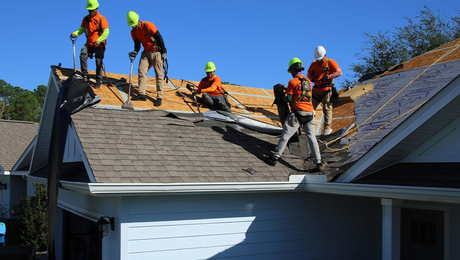How do I determine at what temp a boiler should heat the H2O that circulates through a house for optimal efficiency?
The house is a recently built energy efficient timber frame home with sips panels. Thousands of feet raident tubing were installed in the cellar slab and two floors above. Propane is used to run a small boiler, on demand H2O unit and cook stove.
The house currently uses four gallons of propane per day, while the H2O is heated to 140 deg. With non-constant variables like outside air temp, how is the temp at witch the the boiler operates most efficiently, found.















Replies
Who speced the tube patterns and other related components? They should have a heat loss analysis and load requirements, and a report showing each zone, the losses anticipated there, flow rates, the specified temps for the water in the tube, and other stuff. That's what the HVAC contractor I usually work with provides. The HVAC contractor would be my starting point for balancing the system.
A system like this is delicately tuned on installation with input from the heating engineer. I hope to God almighty above that you are not trying to fiddle around with your own home unit. You could mess thing up bad and end up with a whopping big bill to fix it.
I don't know the size of your house but four gal/day doesn't sound bad to me for this cold weather
Excellence is its own reward!
Pif, but fiddling is FUN! OK, so that's not advice for Al unless he knows the setup. But I just had a lot of fun diagnosing a problem in my system. Had one zone not behaving as it should. Had to trace it from the tstat through a relay to a PLC and back out to another relay and the pump. Dragged out the multimeter and actually had fun checking voltage across the various components. Narrowed it down to a relay that was malfunctioning. Had a spare in the box, switched the leads to that one, and all works great. It was good to confirm the proper operation of the rest of the system. Saved the cost of a service call and had some fun. Still, your point is taken and we agree that the heating engineer, or HVAC contractor, should get Al properly set up, especially since it's a new system.
You are going after the electrical components of the system. I'm imagining him playing with the mixing valves that keep the flow down to 110°F or less, cracking the concrete from excessive heat, or shrinking the wood floorin to the size of toothpicks, or turning the heat up to 160°F and blowing out seals, or changing the flow rates at the manifold untill one floor is 90° and another room stays at 60° so that when he calls the inmstaller to complain the poor guy has to scratch his head, thinking, "Jeeze, I thought I did this right! What could possible have gone wrong? Did my engineer mess me up or something?"
That's if he doesn't blow himself sky high!.
Excellence is its own reward!
Eek!
And truth be told, since I programmed the PLC in the first place, my electrician, HVAC contractor, and I could all be pointing fingers at each other if there was a problem. But since we're all good friends, we'd be more likely to have all 6 hands in the 12 x 12 box at once and try to outbrag the others on who's components were more properly installed. Gotta find a way to make it fun.